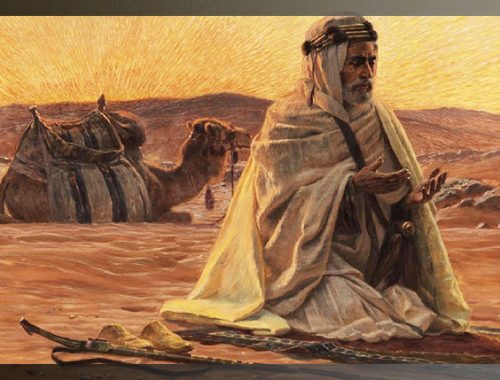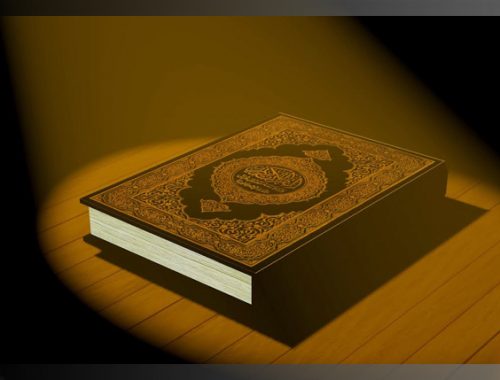
INTRODUCTION
THE HISTORY OF RELIGIONS IS AN ACCOUNT OF THE CONTROVERSY BETWEEN REASON AND TRADITION
Prophets over the ages have challenged the established traditions and contested what they believed to be irreconcilable with Providence. It is explicitly stated in the Quran that the prophets always warned their public against traditions and false beliefs, manifestly at variance with God’s religion, appealing to their intelligence and cogent reasoning. Those adamant in their convictions based on ingrained prejudices inherited from their ancestors were determined not to change their opinions and were resolute not to break with tradition. Throughout history, traditionalism has proven to be the greatest enemy of the call of the Prophet, who urged his community to make use of their intelligence, in an effort to make them amenable to reason. The perpetuation of the established system inherited from our forefathers and the emulation of their ways have always seemed attractive and preferable to rationalization. Traditionalism and conservatism have always clashed with reason. It is odd that religiosity is equated today with conservatism and traditionalism. According to the Quran, man must be governed by reason. He must not be guided by traditions and preconceived ideas not sanctioned by unbiased evidence. We suggest that our readers who prefer to stick to the system of their ancestors consult the following verses of the Quran: 31 Luqmaan, 21; 14 Abraham, 10; 11 Hud, /62 and 109; 5 The Feast, 104; 7 Purgatory, 28.
21 – What! Have We given them a book before this to which they are holding fast?
22 – Instead, they say: “We found our fathers following a certain way, and we do guide ourselves by their footsteps.”
23 – Just in the same way, whenever we sent an envoy before you to a settlement, the leaders among them said: “We found our fathers following a certain way, and we will certainly follow in their footsteps.”
24 – He said: “Even if I brought you better guidance than that which you found your fathers following?” They said: “We are disbelievers in the message you brought.”
43 Vanity, 21- 24
It is made clear in the Quran that compliance with the established creeds of a society or of the majority of a population does not guide a Muslim toward the ultimate truth. (see Chapter 33). Today, we see that communities of people have transformed the Islamic religion into the observance of a set of traditions mostly based on hearsay and blindly accepted without questioning them. Verse 21 of Sura Vanity states that ideas put forth in the name of Islam not based on the Quran are wrongly inferred set of opinions. The following verses point to the fact that what has been inherited from our forefathers has taken precedence over God’s book.
36 – Do not follow that of which you have no knowledge. Verify the ear, the eye, the heart; each will be questioned.
17 The Children of Israel, 36
18 – Those who listen to the word, and follow the best in it: those are the ones whom God has guided, and those are the ones of wisdom.
39 The Throngs, 18
Opinions expressed in the name of religion must therefore be evaluated in the light of these Quranic verses. We must examine their origin and the way they have imposed themselves throughout centuries. In the second part of our book, we shall be dwelling on the fact that the sole source of Islam is the Quran. We shall advise our readers to consult the Quran for a sound and complete coverage of Islam. Then we shall tackle the issue of the hadiths, claimed to be the sayings of the Prophet; sayings in which truth and untruth are inextricably intermingled and are manifestly in conflict with the dictates of the Quran. To say that the hadiths should not be taken as a basis for the Islamic religion is to safeguard the Prophet against slanders, rather than to behave disrespectfully toward him. While studying this question, we suggest that you revise your opinions, taking into consideration Verse 36 of Sura The Children of Israel and bear in mind the statements of Verse 18 of Sura The Throngs in order to attain the truth and re-examine your preconceived ideas and the traditional practices you are indulging in as well as the heritage of your forefathers within the framework of Verses 21, 22, 23, 24 of Sura Vanity, so that you may found your religion not on traditions but on clear evidences of the Quran, God’s will.
<
You May Also Like

HADITHS AND SUNNA
6:20 pm
RELIGION PROFESSED IN THE QURAN
2:59 pm
